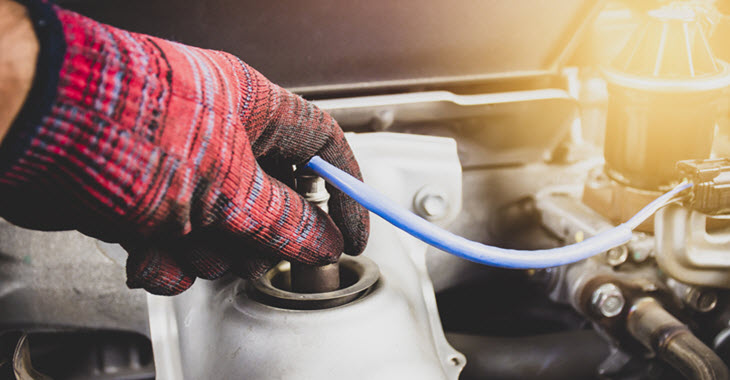When it comes to modern automobiles, the integration of sensors has revolutionized how vehicles operate, ensuring safer, more efficient, and more comfortable driving experiences. BMW, renowned for its innovation and quality, incorporates a variety of sensors in its vehicles. These sensors play crucial roles in enhancing the performance, safety, and comfort of BMW cars.

Engine Sensors
Engine sensors are pivotal in monitoring the engine’s health and performance. BMW uses several types of engine sensors, including:
- Mass Air Flow Sensor (MAF): This sensor measures the volume and density of air entering the engine. It ensures the right amount of fuel is mixed with the air for optimum combustion.
- Oxygen Sensor: Located in the exhaust system, it monitors the oxygen level in the exhaust gases to optimize fuel injection and emissions.
- Crankshaft Position Sensor: It monitors the position and rotational speed of the crankshaft, which is essential for the engine control unit (ECU) to time the ignition and fuel injection.
- Camshaft Position Sensor: This works alongside the crankshaft position sensor, helping control the timing of fuel injection and ignition.
Safety Sensors
Safety is paramount in BMW vehicles, and various sensors contribute to this:
- Airbag Sensors: These sensors detect collision forces and deploy airbags in the event of an accident.
- Parking Sensors: Ultrasonic sensors in the front and rear bumpers aid in parking by detecting obstacles and alerting the driver.
- Lane Departure Warning Sensors: These use cameras to monitor lane markings and alert the driver if the vehicle begins to drift out of its lane without signaling.
Driver-Assistance Sensors
BMW’s driver-assistance technologies rely heavily on sensors for their functionality:
- Adaptive Cruise Control Sensors: Using radar and cameras, these sensors maintain a safe distance from the vehicle ahead while cruising.
- Blind Spot Detection: Radar sensors monitor areas that the driver can’t easily see and alert them of vehicles in their blind spot.
- Collision Avoidance Sensors: These sensors help in detecting imminent collisions and can automatically apply brakes to prevent or mitigate an accident.
Comfort and Convenience Sensors
To enhance the comfort and convenience of driving a BMW, various sensors are employed:
- Climate Control Sensors: These sensors monitor the cabin’s temperature, humidity, and even the sunlight intensity to adjust the air conditioning system
- Rain-Sensing Wipers: Optical sensors detect rain on the windshield and automatically adjust the wiper speed and frequency.
- Automatic Headlight Sensors: These sensors detect the ambient light levels and automatically turn the headlights on or off.
Performance Sensors
Performance sensors in BMW vehicles ensure optimal driving dynamics:
- Wheel Speed Sensors: Part of the Anti-lock Braking System (ABS), they monitor the speed of each wheel to prevent skidding during braking.
- Suspension Sensors: These sensors monitor the vehicle’s suspension system, adjusting it for better handling and comfort.
- Tire Pressure Monitoring Sensors (TPMS): Embedded in the wheels, these sensors monitor the tire pressure and alert the driver of any significant changes.
Transmission Sensors
Transmission sensors contribute to the smooth operation of the vehicle’s gearbox:
- Transmission Speed Sensor: This sensor monitors the transmission’s input and output speeds to aid in optimal gear shifting.
- Transmission Temperature Sensor: It monitors the temperature of the transmission fluid, ensuring the transmission operates within safe temperatures.
Fuel System Sensors
These sensors are crucial for fuel efficiency and emissions control:
- Fuel Pressure Sensor: It monitors the pressure of the fuel in the fuel rail, ensuring it is at the correct level for efficient combustion.
- Fuel Level Sensor: This sensor measures the amount of fuel in the tank, providing the driver with accurate fuel level information.
BMW’s use of advanced sensors in their vehicles underscores their commitment to innovation, safety, and quality. Each sensor plays a specific role in enhancing various aspects of the vehicle, from engine performance to driver comfort and safety. As automotive technology continues to evolve, we can expect BMW to integrate even more sophisticated sensors, further improving the driving experience for their customers.

Contact Ultimate Bimmer Service Today
If you’re experiencing issues with your BMW’s sensors or require any other repair and maintenance services, don’t hesitate to contact us at Ultimate Bimmer Service. Our dedicated team, located in Carrollton, TX, is committed to providing top-notch service to BMW owners throughout the Dallas area.
We understand the intricacies of BMW vehicles and are equipped to handle all of your automotive needs with expertise and care. Reach out to us for reliable, professional service that ensures your BMW performs at its best.
* BMW M5 Car image credit goes to: Brandon Woyshnis.


